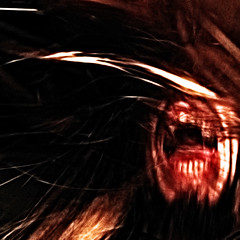 Give me a few minutes in an unfamiliar library without the guidance of my "To Read" list, and I'll probably default to the young-adult/children's stacks. The quality for such titles seems consistently higher to me than that of the grown-up stuff. Writing for adults can be like double-pleated pants with a waistband an inch-or-so too big; there's room for the material to get all sorts of sloppy. Not so with books for younger readers. Children haven't yet had the intellectual guilt of failing to finish a book foisted on them and thus will simply drop anything that's indulgently long, messily constructed or boring. To be successful, YA scribes must bring their A-game, which is exactly what Rick Yancey does with his horror novel The Monstrumologist.
Give me a few minutes in an unfamiliar library without the guidance of my "To Read" list, and I'll probably default to the young-adult/children's stacks. The quality for such titles seems consistently higher to me than that of the grown-up stuff. Writing for adults can be like double-pleated pants with a waistband an inch-or-so too big; there's room for the material to get all sorts of sloppy. Not so with books for younger readers. Children haven't yet had the intellectual guilt of failing to finish a book foisted on them and thus will simply drop anything that's indulgently long, messily constructed or boring. To be successful, YA scribes must bring their A-game, which is exactly what Rick Yancey does with his horror novel The Monstrumologist.Rick Yancey never thought the visit to the retirement center would yield anything but strained pleasantries. It was his duty to thank the center's director, especially since the little man had helped him research his last novel. During his visit, though, Yancey received a manuscript from a recently deceased resident named William James Henry, a resident who claimed to be 131-years old. The story contained therein tells how orphaned Henry grew up as an assistant to the irritable and imperious Dr. Pellinore Warthrop. Now, Warthrop (the manuscript claims) was no ordinary medical man; he was a monstrumologist, a scholar of those strange and macabre creatures dwelling on the border between science and myth. But during the spring of 1888, the existence of one race became incontrovertible -- that of the Anthropophagi. Testified to in ancient sources such as Herodotus and Pliny the Elder, these ravenous beasts possess no head, instead having eyes on their shoulders and rows of razored teeth in their midsections. And in that chilly New England spring, the only thing that stood between them and wholesale slaughter of the town of New Jerusalem was the monstrumologist and his young assistant.
It is a testament to Yancey's skill that his 434-page novel reads like one half that size. He keeps his prose pleasing, his plot moving and his characters delightfully complex. The challenging relationship alone between lonely Will Henry and self-centered Dr. Warthrop (one composed of equal parts antipathy and grudging adoration) could've anchored The Monstrumologist's orbit. However, the secondary characters prove just as interesting, from the bereaved, mentally broken son of the local pastor to an amoral monster hunter who takes Nietzsche's myth of the superman very seriously to a despicably manipulative sanatorium superintendent who ranks high on my personal list of Extremely Creepy Villains.
The Monstrumologist only stumbles on two points, but they're significant. The first is its target audience, namely the YA crowd. It isn't an exaggeration to call the novel gore-drenched. Characters end up decapitated, torn limb from limb, slashed open with both claws and knives, internally consumed by worms, immolated, and wracked with maggot-borne bone rot. You get the idea: This ain't one that should be marketed to the kiddos. The second issue lies with the treatment of the problem of evil. By repeatedly juxtaposing human travails with religious content -- one poor bloke gets slaughtered moments after quoting the twenty-third Psalm -- Yancey seems to suggest that suffering itself disproves the existence of a loving God. A monstrously simplistic take in an otherwise excellent book.
(Picture: CC 2007 by Alex(inyoureyes); Hat Tip: B. Nagel)


6 comments:
YA is an interesting genre--it certainly features lean prose, but sometimes it can threaten to be too focused, and not expansive enough for my tastes.
But then Sunshine is one of my favorite books. So my taste may skew towards the expansive.
Btw, not that you need more recommendations, but the YA novel *I am Not a Serial Killer* is well worth checking out. It has a 3rd-act twist that worked differently than I expected, but I think you'd thoroughly enjoy reviewing it, and the book is short but hard to put down.
In recent years, I've begun to lean towards leaner prose, with a few exceptions. (William Gibson can get away with being as expansive as he'd like.)
That title looks interesting. Another one to add to the list!
Thanks for reading, btw. And I've gotta agree with your assessment of quality. Now, it could be that since I see more YA, I get more actual number good books, but the quality percentages are in fact similar. I'll let the math-y ppl figure that one out. I also think it's on the gore-y end of YA.
As I may have mentioned before, I got a real familiar feeling from this story. Early 19th century, concerned with mythical or supernatural beings, coastal towns . . . plus the secret seems to be lifted straight from Lovecraft as well.
Enjoyed the book. enjoyed the write-up more.
Again, you are too kind, sir. Thanks for suggesting the title. I had quite a bit of fun with it.
Gah. Wrote the time period wrong. Late 19th, early 20th century.
Typos caused by baby-induced sleeplessness are automatically forgiven.
Post a Comment